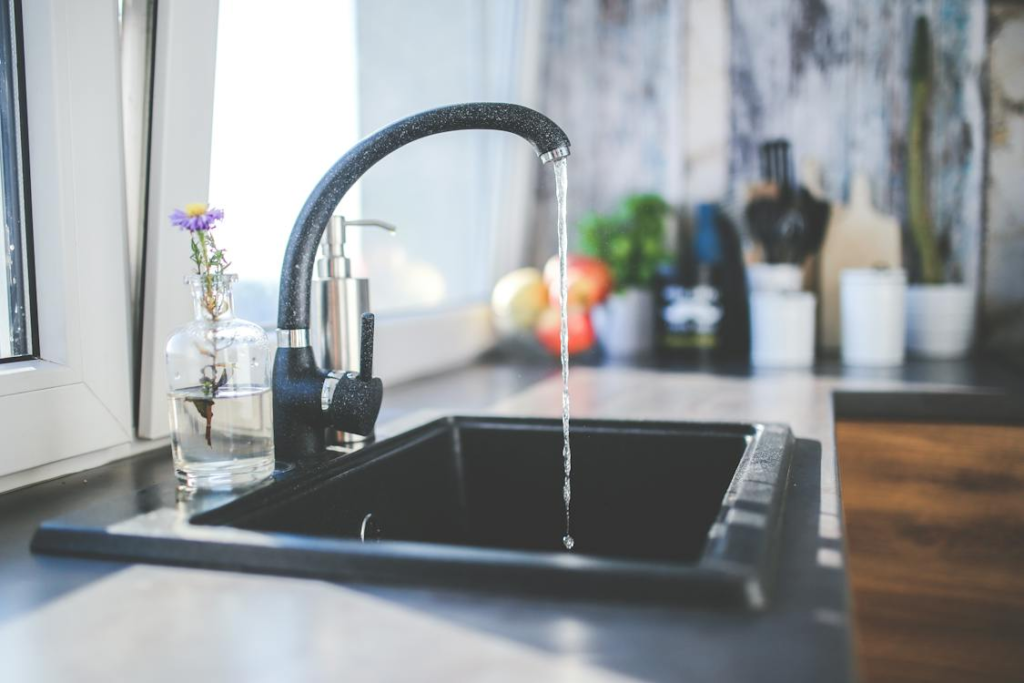Our daily routine cannot go about without the use of water. It begins with the comforting sound of water flowing from our tap, ready to hydrate, clean, and nourish.
But what if the water that reaches you has invisible contaminants, affecting not just taste but potentially jeopardizing your family’s health?
That is something you should be wary of and avoid at all costs. After all, your and your family’s health is at stake.
Water filtration systems by Your 1 Plumber provide clean, soft water for daily use. Our plumbers are highly skilled and trained, providing professional plumbing services in Maryland.
Types of Water Filtration Systems:
Here are nine types of water filtrations;
1) Activated Carbon Filters:
Activated carbon filters are a popular choice for homeowners looking to improve the taste and odor of their water.
These filters effectively remove chlorine, organic compounds, and other impurities, providing cleaner and better-tasting water.
2) Reverse Osmosis Systems:
Known for their high efficiency in removing a broad spectrum of impurities, reverse osmosis systems are excellent at reducing contaminants like heavy metals, minerals, and microbes.
They are particularly effective in enhancing water quality for drinking and cooking.

3) UV Water Purifiers:
UV water purifiers use ultraviolet light to eliminate bacteria, viruses, and other microorganisms in the water.
This chemical-free solution ensures that your water is free from harmful pathogens, contributing to a healthier home environment.
4) Ion Exchange Filters:
Ion exchange filters are effective in reducing water hardness by replacing calcium and magnesium ions with sodium or potassium ions.
This process helps prevent the buildup of limescale in appliances and plumbing, contributing to improved water quality.
5) Ceramic Filters:
Ceramic filters are commonly used in portable water filtration devices. These filters consist of porous ceramic material that effectively removes sediments, bacteria, and protozoa from the water.
They are often combined with activated carbon for enhanced filtration.
6) Distillation Systems:
Distillation involves boiling water to create steam, which is then condensed back into liquid form. This process effectively removes contaminants with higher boiling points, leaving behind purified water.
Distillation is particularly useful for eliminating minerals, heavy metals, and some organic compounds.
7) Granular Activated Carbon (GAC) Filters:
GAC filters consist of loose granules of activated carbon. They are effective in improving taste and reducing odors, making them suitable for point-of-use applications like faucet-mounted or pitcher filters. GAC filters can also target specific contaminants based on their size and chemical properties.
8) Water Softeners:
While primarily designed to address water hardness caused by minerals like calcium and magnesium, water softeners indirectly contribute to improved water quality.
By reducing scale buildup, water softeners enhance the efficiency and lifespan of appliances like water heaters and dishwashers.

9) In-Line Water Filters:
In-line filters are typically installed directly into water lines. They can be used for point-of-use or whole-house applications, depending on their size and filtration capacity.
These filters are versatile and can be customized to target specific contaminants.
Choosing the Right Filtration System:
Here are some considerations;
Water Quality Assessment:
Before selecting a water filtration system, it’s essential to assess the specific water quality concerns in your area.
Different regions may face varying challenges, such as high mineral content, microbial contamination, or chemical impurities.
Maintenance Requirements:
Evaluate the maintenance demands of each filtration system. Some systems may require regular filter replacements or cleaning, and understanding these aspects can contribute to the long-term efficiency of your chosen system.
Micron Rating:
The micron rating of a water filter indicates the size of particles it can effectively capture. Different contaminants vary in size, so selecting a filter with an appropriate micron rating is essential.
For instance, sediment filters with a lower micron rating are effective against fine particles, while carbon filters can address smaller contaminants like chlorine.
Compatibility with Water Sources:
Ensure that the chosen filtration system is compatible with your water sources.
For instance, well water may have different contaminants than municipal water, and the filtration system should be equipped to handle these specific challenges.
Professional Plumbing Services By Your 1 Plumber
Your 1 Plumber offers top-notch water filtration services for top-quality water in Germantown, Silver Spring, Frederick, Columbia, and other Maryland areas. We have been offering professional plumbing services in the region for over 15 years and have become a trusted name in the market.
So, get in touch with us now.

